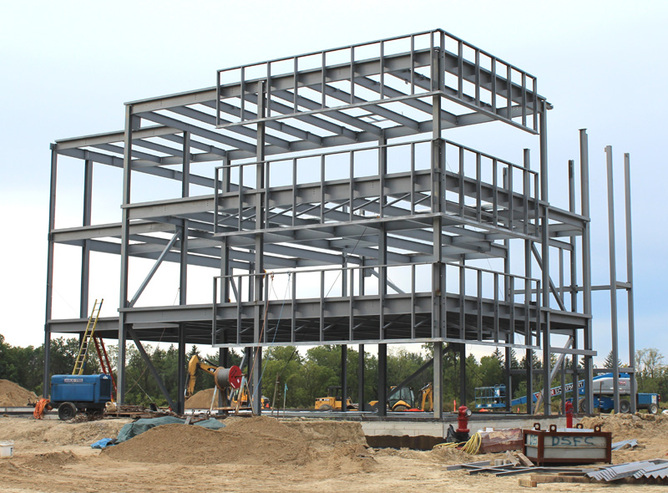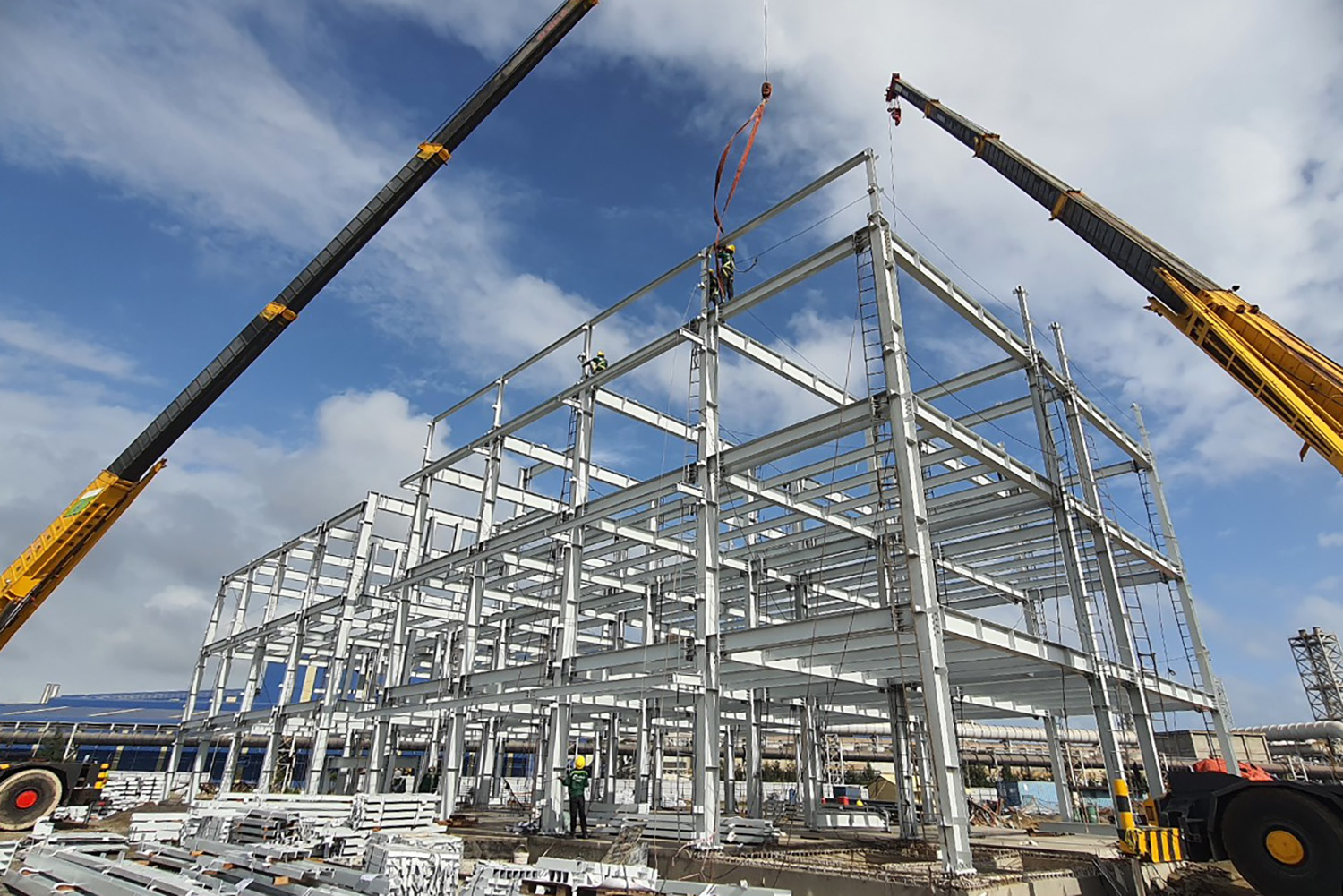An Overview
E-state Nirman Nigam, a prominent real estate and infrastructure development entity, typically requires skilled structural contractors to manage and execute projects effectively. In this article, we will delve into the various aspects of a structural contractor's role in E-state Nirman Nigam, exploring their responsibilities, qualifications, and how they contribute to the overall success of construction projects.

What is a Structural Contractor
A structural contractor is a specialized professional or firm responsible for constructing and managing the structural elements of a building or infrastructure project. This includes the design, fabrication, and erection of the framework that supports the building’s load, such as foundations, beams, columns, slabs, and roofs. Their primary role is to ensure that the structure can bear the intended loads and resist forces such as gravity, wind, seismic activity, and other environmental stresses.
In the context of E-state Nirman Nigam, a structural contractor would be involved in the creation of residential, commercial, or mixed-use developments, providing technical expertise and on-site construction management to ensure the structural integrity of the project.
Role of Structural Contractors in E-state Nirman Nigam
1. Pre-Construction Planning and Design Collaboration
The process of constructing a building begins long before the first brick is laid. Structural contractors in E-state Nirman Nigam work closely with architects, engineers, and designers to understand the design and specifications of the building. This collaboration is crucial as it helps to address various challenges related to structural load-bearing, material selection, and compliance with local building codes and regulations.
- Analysis and Review: Structural contractors review architectural designs, examining the proposed structural elements for feasibility, cost-effectiveness, and safety. They ensure that the designs comply with building codes and environmental regulations.
- Site Surveys and Soil Testing: Before starting construction, structural contractors may conduct site surveys and soil testing to understand the soil conditions. This is essential for determining the appropriate foundation design.
2. Material Procurement and Management
Structural contractors are responsible for procuring the materials needed for the project. They must ensure that the materials meet quality standards and that they are delivered to the site on time. In E-state Nirman Nigam, the materials often used include concrete, steel, timber, and other specialized construction materials.
- Material Sourcing: Structural contractors identify and source high-quality materials from reliable suppliers. They must ensure that the materials adhere to the required specifications and quality standards.
- Inventory Management: Proper management of materials is critical to avoiding delays in the construction timeline. Structural contractors are responsible for maintaining an inventory and ensuring efficient use of resources.

3. Construction Execution
Once the design is finalized and materials are on-site, the structural contractor’s primary task is to manage and oversee the construction process. This includes the actual building of structural elements like foundations, walls, beams, columns, and floors.
- Foundation Work: The foundation is one of the most critical parts of any building. The structural contractor ensures that the foundation is correctly designed and constructed to support the entire building structure. This involves excavating the site, laying concrete, and reinforcing it to prevent settling or shifting.
- Superstructure Construction: The structural contractor oversees the construction of the superstructure, which includes all load-bearing elements above the foundation. This includes installing columns, beams, floors, and roofs.
- Quality Control: E-state Nirman Nigam Throughout the construction process, the contractor ensures that all structural elements meet the required safety standards. They also perform regular inspections and tests to check the quality of the construction.
4. Safety Management
Safety is one of the primary concerns for any construction project. Structural contractors in E-state Nirman Nigam are responsible for enforcing safety protocols on the construction site. This includes ensuring that workers follow safety guidelines and that all equipment is in good working condition.
- Worker Safety: The structural contractor must implement a safe working environment for all construction staff. This includes proper training, the use of personal protective equipment (PPE), and adherence to health and safety regulations.
- Risk Mitigation: Structural contractors conduct risk assessments regularly and take corrective actions to minimize potential hazards, such as falls, machinery accidents, or structural collapses.
5. Project Management and Coordination
Structural contractors play a vital role in the overall management of the construction process. They work closely with other contractors (e.g., electrical, plumbing) to ensure that the structural elements are integrated correctly with other systems within the building.

- Timeline Management: The contractor ensures that the project stays on schedule by coordinating with various stakeholders, including architects, engineers, and subcontractors. They are responsible for setting milestones and tracking progress to meet deadlines.
- Budget Management: Managing costs is essential, and structural contractors must ensure that the project stays within budget. This includes negotiating with suppliers, managing labor costs, and controlling waste and inefficiencies.
- Regulatory Compliance: Structural contractors ensure that the construction complies with all local and national building codes and regulations. They are responsible for obtaining necessary permits and inspections from local authorities.
Key Qualifications and Skills for Structural Contractors
The role of a structural contractor in E-state Nirman Nigam requires a unique set of skills and qualifications to ensure that the construction process is efficient, safe, and high-quality. Some of the key qualifications include:
- Educational Background: Structural contractors typically hold degrees in civil engineering, architecture, or a related field. Many also pursue certifications in construction management to further enhance their skills.
- Technical Expertise: A deep understanding of structural engineering principles, building materials, and construction methods is essential. Structural contractors must be well-versed in the latest construction technologies and trends.
- Experience: Hands-on experience in managing large-scale construction projects is crucial. Experience with different types of buildings and infrastructure projects allows contractors to anticipate challenges and develop practical solutions.
- Problem-Solving and Analytical Skills: Contractors must be able to solve complex engineering and construction problems, especially when unexpected issues arise during the construction process.
- Communication and Leadership: Structural contractors must be excellent communicators, able to coordinate with different teams and ensure smooth collaboration throughout the construction process.

Conclusion
The role of a structural contractor in E-state Nirman Nigam is a multifaceted one that requires a combination of technical expertise, managerial skills, and an unwavering commitment to safety and quality. From pre-construction planning and material procurement to on-site construction and quality control, structural contractors play a pivotal role in ensuring that projects are completed successfully, on time, and within budget. Their contributions are critical to the successful execution of real estate developments, which form the backbone of modern cities and communities.
Leave a Reply